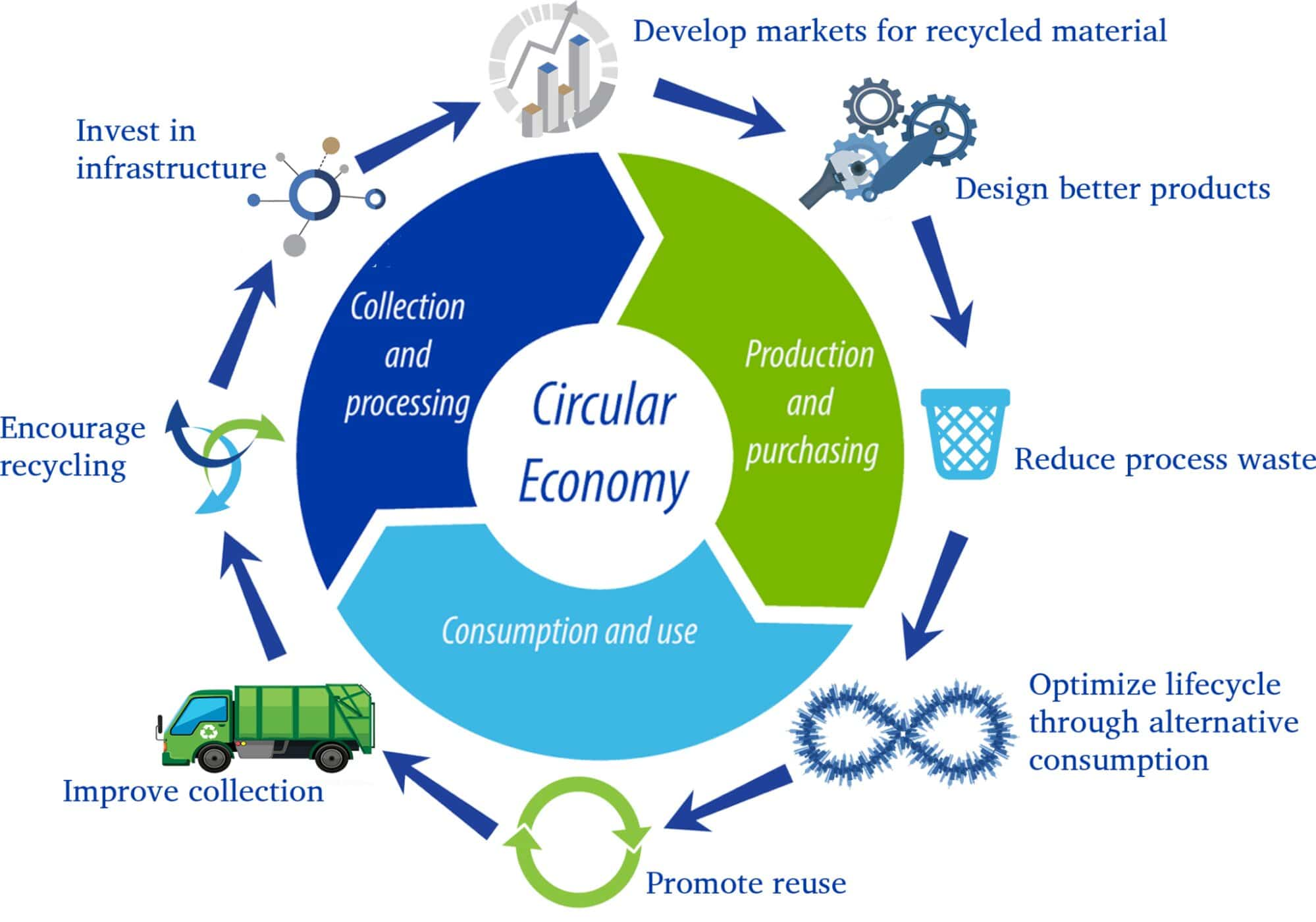Governance
Draft Notification on EPR on Waste Oil
- 11 May 2023
- 7 min read
For Prelims: Extended Producer Responsibility, circular economy
For Mains: The importance of waste oil management and the potential impact of EPR, The significance of EPR in the circular economy
Why in News?
Recently, the Ministry of Environment, Forest and Climate Change (MoEFCC) introduced a draft notification on Extended Producer Responsibility (EPR) on waste oil.
- The Union Budget 2023-24 in India emphasizes sustainable development and a circular economy, with a goal of shifting from a linear model to a circular one through the replacement of natural resource usage with valuable waste materials.
What is EPR?
- It makes producers responsible for the environmental impacts of their products throughout their life cycle.
- EPR aims to promote better waste management and reduce the burden on municipalities.
- It integrates environmental costs into product prices and encourages the design of environmentally sound products.
- EPR is applicable to various types of waste, including plastic waste, e-waste, and battery waste.
- The E-Waste (Management and Handling) Rules, 2011 introduced the concept of EPR for the first time in India.
What is the Draft Notification on EPR on Waste Oil?
- About:
- EPR on waste oil is to improve the circularity of waste oil management. Waste oil is a contaminant that contains harmful substances that can pollute freshwater and soil.
- Waste oil can act as a contaminant as it contains benzene, zinc, cadmium and other impurities that have the potential to pollute freshwater.
- EPR on waste oil is to improve the circularity of waste oil management. Waste oil is a contaminant that contains harmful substances that can pollute freshwater and soil.
- Aim:
- Prevent pollution and bring waste oil collection and recycling under the formal sector.
- Recommendation:
- It recommends the registration of stakeholders, including producers, collection agents, recyclers and waste oil importers, on Central Pollution Control Board’s (CPCB) online portal.
- Applicability:
- EPR on waste oil is applicable to producers, and bulk generators (like industry, railways, transport companies, power transmission companies, etc.).
- EPR Targets:
- Gradual increase in waste oil recycling targets, starting from 2024-25.
- Base year target set at 10%, increasing by 10% annually until 2029.
- Future targets based on the quantity of lubrication oil sold or imported annually.
- Provisions and Responsibilities:
- EPR certificate generation, computation of eligible quantity, and transaction details.
- Clear demarcation of responsibilities for producers, importers, agents, recyclers, etc.
- Online portal for registration, filing returns, and tracing oil produced or generated.
- Bureau of Indian Standards is entrusted with setting necessary standards for re-refined oil.
- Challenges:
- Need for monitoring, verification, and auditing mechanisms.
- Overburden on Central Pollution Control Board(CPCB) and State Pollution Control Boards(SPCBs) require additional support.
- Focus on improving waste oil circularity and reducing fresh oil consumption.
- Questions on compliance, third-party audits, and monitoring oversight.
- Expert Opinions:
- Positive reception by non-profit organizations for EPR on waste oil.
- Concerns over implementation, monitoring, oversight, and penalties for defaulters.
What is India’s Progress Towards Circular Economy?
- Notifying various rules and policies for waste management, such as the Plastic Waste Management Rules,2022, e-Waste Management Rules 2022, Battery Waste Management Rules 2022 etc.
- Constituting 11 committees led by the concerned line ministries to prepare comprehensive action plans for transitioning from a linear to a circular economy in 11 focus areas, such as agriculture, mobility, textiles, electronics, etc.
- NITI also organized an international conference on ‘Sustainable Growth through National Recycling’.
- Collaborating with international partners, such as the European Union and the United States, to exchange best practices and learnings on resource efficiency and circular economy.
- Supporting social and environmental innovators who are developing circular economy solutions for waste management, such as the World Institute of Sustainable Energy.
- Encouraging businesses and industries to adopt circular economy principles and practices in their production systems and supply chains.
- India's progress toward a circular economy is still in its early stages and faces many challenges, such as a lack of awareness, data gaps, regulatory barriers, infrastructural constraints, and behavioral inertia.
- However, with concerted efforts from all stakeholders and continuous learning and innovation, India can achieve its vision of a resilient and inclusive circular economy.
What is A Circular Economy?
- About:
- A Circular Economy is the one where products are designed for durability, reuse and recyclability and thus almost everything gets reused, remanufactured, and recycled into a raw material or used as a source of energy.
- It includes 6 R’s - Reduce, Reuse, Recycle, Refurbishment, Recover, and Repairing of materials.
- Need for Circular Economy:
- CE focuses on minimising waste while maximising utilisation and calls for a production model aiming to retain the most value to create a system that promotes sustainability, longevity, reuse, and recycling.
- Though India has always had a culture of recycle and reuse, its rapid economic growth, growing population, impact of climate change and rising environmental pollution, the adoption of a circular economy is more imperative now.
- CE can lead to the emergence of more sustainable production and consumption patterns, thus providing opportunities for developed and developing countries to achieve economic growth and inclusive and sustainable industrial development (ISID) in line with the 2030 Agenda for Sustainable Development.
UPSC Civil Services Examination, Previous Year Questions (PYQs)
Q. In India, ‘extend producer responsibility’ was introduced as an important feature in which of the following? (2019)
(a) The Bio-medical Waste (Management and Handling) Rules, 1998
(b) The Recycled Plastic (Manufacturing and Usage) Rules, 1999
(c) The e-Waste (Management and Handling) Rules, 2011
(d) The Food Safety and Standard Regulations, 2011
Ans: (c)





